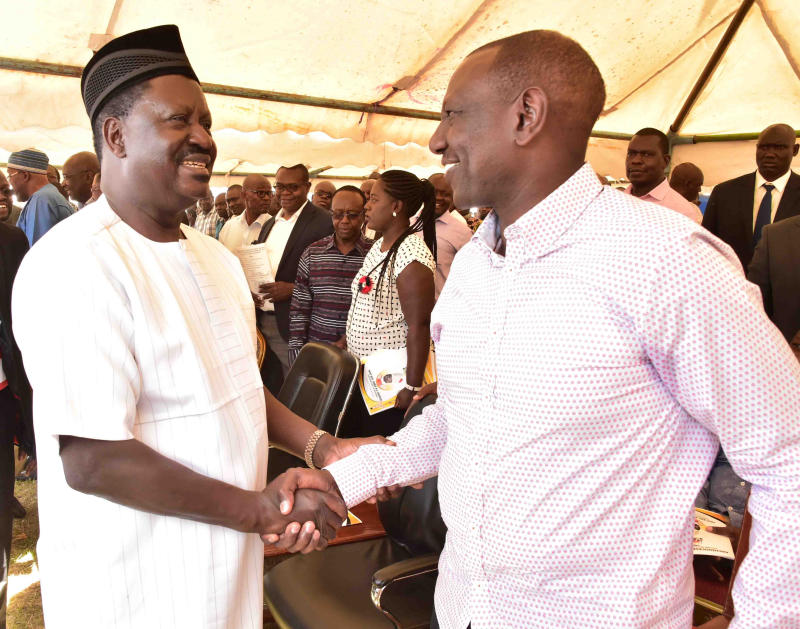×
The Standard e-Paper
Home To Bold Columnists

Deputy President William Ruto and Former Prime Minister Raila Odinga during the installation of Most Reverend Philip Anyolo as the Archbishop of Kisumu Catholic Archdiocese. [PICTURE REBECCA NDUKU /DPPS]
Opposition chief had called for Kenya to borrow a leaf from the US